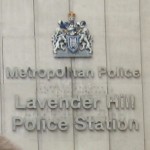Yesterday I used the Internet as follows:
- Sent and received 81 emails, of which 58 related to council and ward work, 10 related to my non-council work and 13 were to friends and family
- Visited pages at BBC News, Department of Communities and Local Government, London School of Economics, Local Government Information Unit, Angry People in Local Papers, Literature and Latte, The Guardian, Wikipedia, Liverpool Council and YouTube
- Downloading an application from the Mac App Store (Byword, it’s excellent.)
- Automatic back-up using an offsite service.
- Syncing my Dropbox folder (a great free service, sign up with this link and we both get a bit extra for free.)
I’m sure this information is as interesting to you as it is useful to the security of the nation.
Without knowing the content of those emails it’s both boring and useless. I might have emailed my wife about my secret plan to blow up the Thames riverside by igniting sewage gases.
Or I might have dropped her a line to let her know a delivery had arrived.
Of course, if the security services knew I needed monitoring they could apply for a warrant to see the content: but that’s exactly what they do now.
The proposals seem to amount to little more than a massive intrusion into privacy with the only benefit being to save the security services (and a lot more) a little administrative effort. And all the while using the excuse of national security; overlooking that nasty scary things like terrorism seem to have declined without a police state in any case.
The idea of the state having access to our emails and internet activity without independent oversight should shock everyone to the core. You might trust the current government with this information, you might not. But what about the next government, or the one after that? The principle of personal freedom and liberty is an absolute.
Even assuming our traditions of liberal democracy counter the potential of authoritarian government it is a worrying intrusion of our privacy and contrary to the notion that we are a free, liberal democracy. I am astounded that the proposal comes from a government that should be respecting and promoting the primacy of the individual over the state. I know there can be an authoritarian streak in the Conservatives, but thought one of the benefits of the coalition was the Liberal Democrats would check it.
What troubles me most of all, however, is the number of people who are so used to this sort of erosion of civil liberties that they not only trot out the ‘nothing to hide’ line, they even believe the surveillance of a populace is the price to be paid for security. As dangerous as the all-powerful state is, a submissive population that does not value its rights is worse.
 Once again the issue of CCTV has raised it’s head. This time it is as a result of a ‘Big Brother Watch’ press release that, I believe, totally misses the real point.
Once again the issue of CCTV has raised it’s head. This time it is as a result of a ‘Big Brother Watch’ press release that, I believe, totally misses the real point. I have tended to shy away from national politics and issues in this blog, keeping it more focused on local and council issues. However, one subject that increasingly concerns me is the erosion of civil liberties in this country. Yesterday saw another little chunk of our freedoms eroded with
I have tended to shy away from national politics and issues in this blog, keeping it more focused on local and council issues. However, one subject that increasingly concerns me is the erosion of civil liberties in this country. Yesterday saw another little chunk of our freedoms eroded with